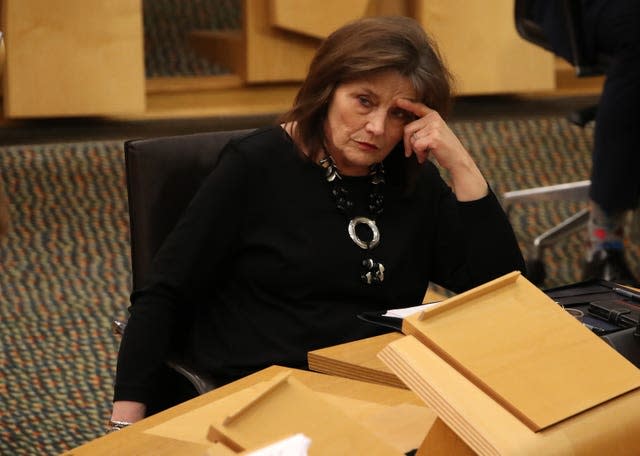Red list system for Covid quarantine is ‘inadequate’, says Freeman
The red list system for quarantining international arrivals is “inadequate”, Health Secretary Jeane Freeman has said, following the arrival of the Brazillian Covid-19 variant in the UK.
Six UK cases of the concerning P1 variant, first detected in the Brazilian city of Manaus, have been identified: three in England and three in Scotland.
The three Scottish cases were found in asymptomatic passengers who flew into Aberdeen on the BA1312 flight from London Heathrow on Friday.
They tested positive while self-isolating and contact tracing of other passengers on the flight is currently ongoing.
Ms Freeman said there is no reason to believe that the Brazilian strain of Covid-19 is in circulation in Scotland but efforts to “identify and break any possible chains of transmission” are ongoing.

Ms Freeman told the Scottish Government’s daily Covid-19 briefing: “If you were on that flight and have not yet been contacted, you will be contacted shortly, so please wait for that.
“I want to stress that there is currently no reason to believe that the P1 variant of the virus is in circulation in Scotland, however, I hope this summary reassures you that we are doing everything we can and everything necessary to check whether this variant of the virus could have been transmitted within Scotland and to identify and break any possible chains of transmission.”
She added: “We know that current vaccines are effective against the strains of the virus which have already been established in the UK.
“However, more work is required to determine that this remains the case for emerging strains of the virus, such as the one we are highlighting today from Brazil.”
The Health Secretary said the issue of international travel remained the main area of contention with the UK Government.
All international passengers arriving at Scottish airports must enter the hotel quarantine system, whereas the UK Government only requires this of those coming from countries on the “red list” – most of which are in South America and Africa.
A Scottish Government advisor, Professor Devi Sridhar of Edinburgh University, said in a tweet the arrival of the new variant showed the red list approach “doesn’t work”, as the passengers in question arrived in the UK via Paris.
Ms Freeman said she agreed with Prof Sridhar’s assessment, saying: “That’s why the Scottish Government has consistently argued that the red list as the sole means of introducing and providing managed quarantine is inadequate.”
She said international travel continues to be the “main area that we seek to persuade the UK Government to take steps on”.
Why robust testing & quarantine policies are needed for international travel given # of circulating variants. And why just 'red-list' country approach doesn't work (flew from Brazil via Paris & London). Hopefully quickly contained in this instance. https://t.co/AK9rbiNpCb
— Prof. Devi Sridhar (@devisridhar) February 28, 2021
Monday marks one year since the first confirmed case of coronavirus in Scotland, and Ms Freeman said that “after 12 long months an end to the pandemic may now be in sight”.
“During the last 12 months, our lives have been turned upside down in ways which would have been absolutely unimaginable at the beginning of 2020,” she said.
“For thousands of families who have lost loved ones to this virus … the last 12 months have brought grief and heartbreak.
“Many people have been anxious about their own health and that of their loved ones, or they have faced economic hardship due to redundancy or furlough.
“For all us, forced separation from friends and loved ones has been, and is, hard to endure.”
She added: “It is impossible to adequately express how grateful I am for everything that people across Scotland have done and endured during the last 12 months and for the tireless and unrelenting work of our health and social care staff and those who have kept our vital public services running.
“We owe you an enormous debt of gratitude.”

 Yahoo Finance
Yahoo Finance 